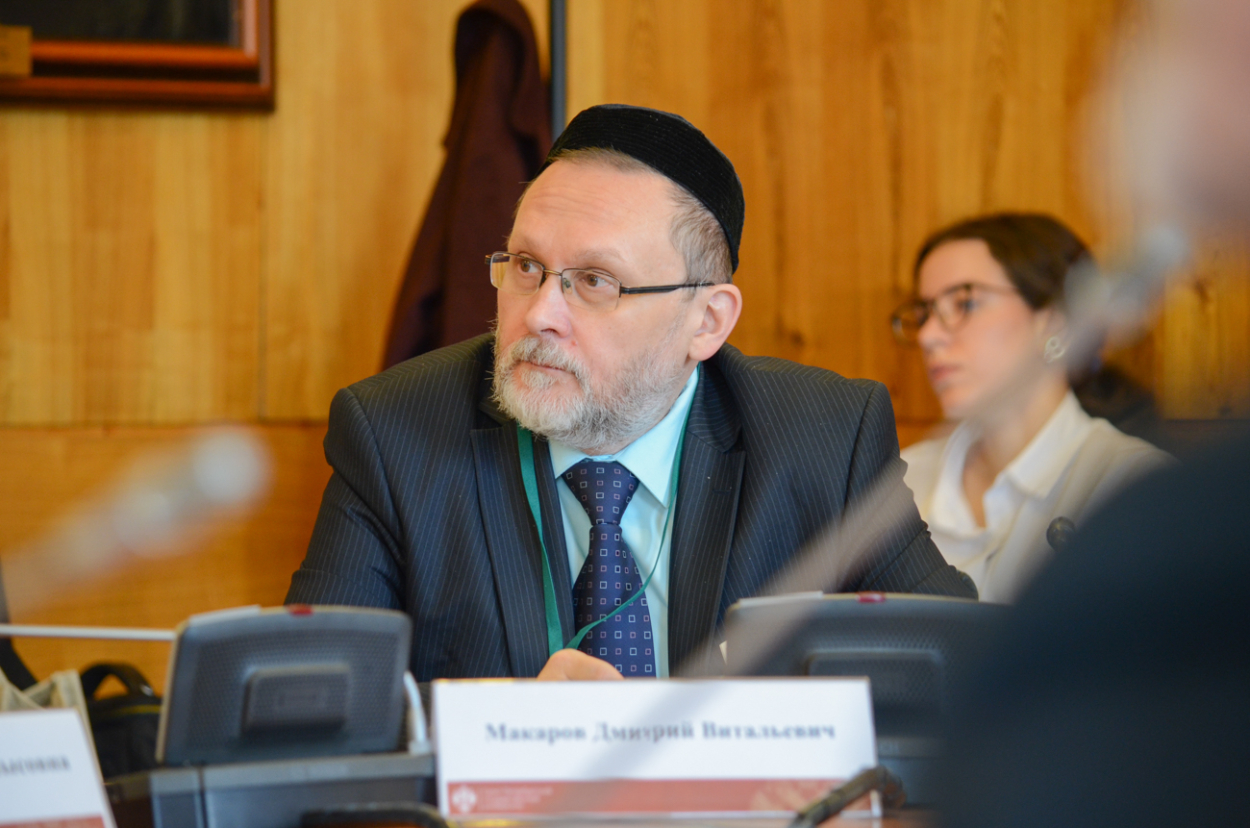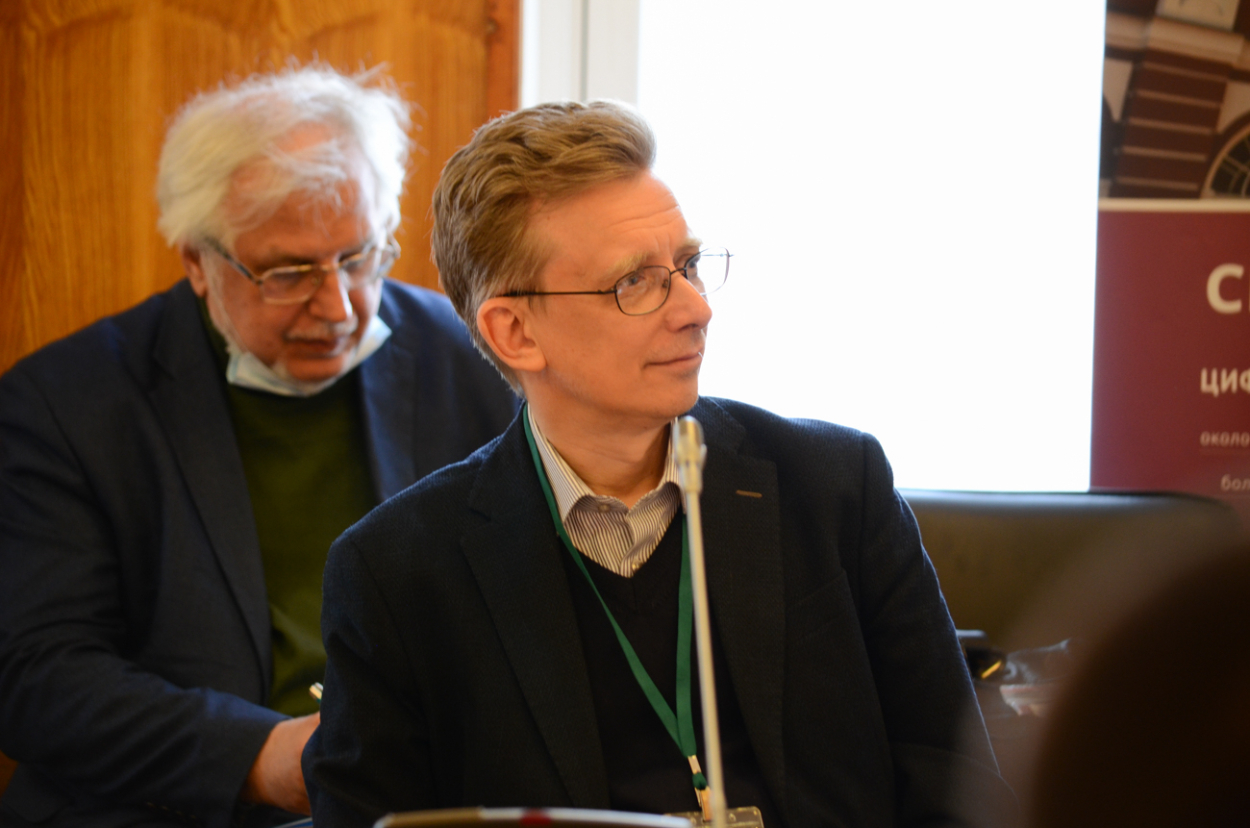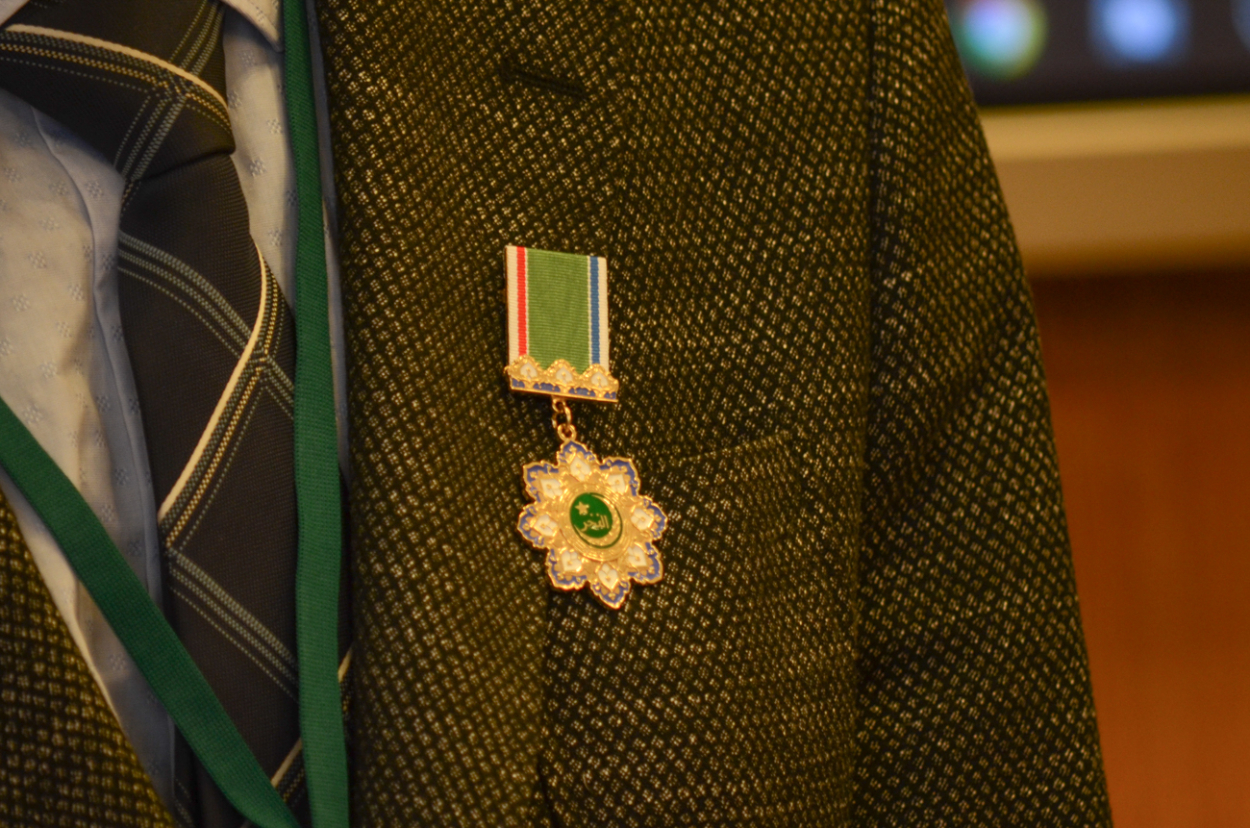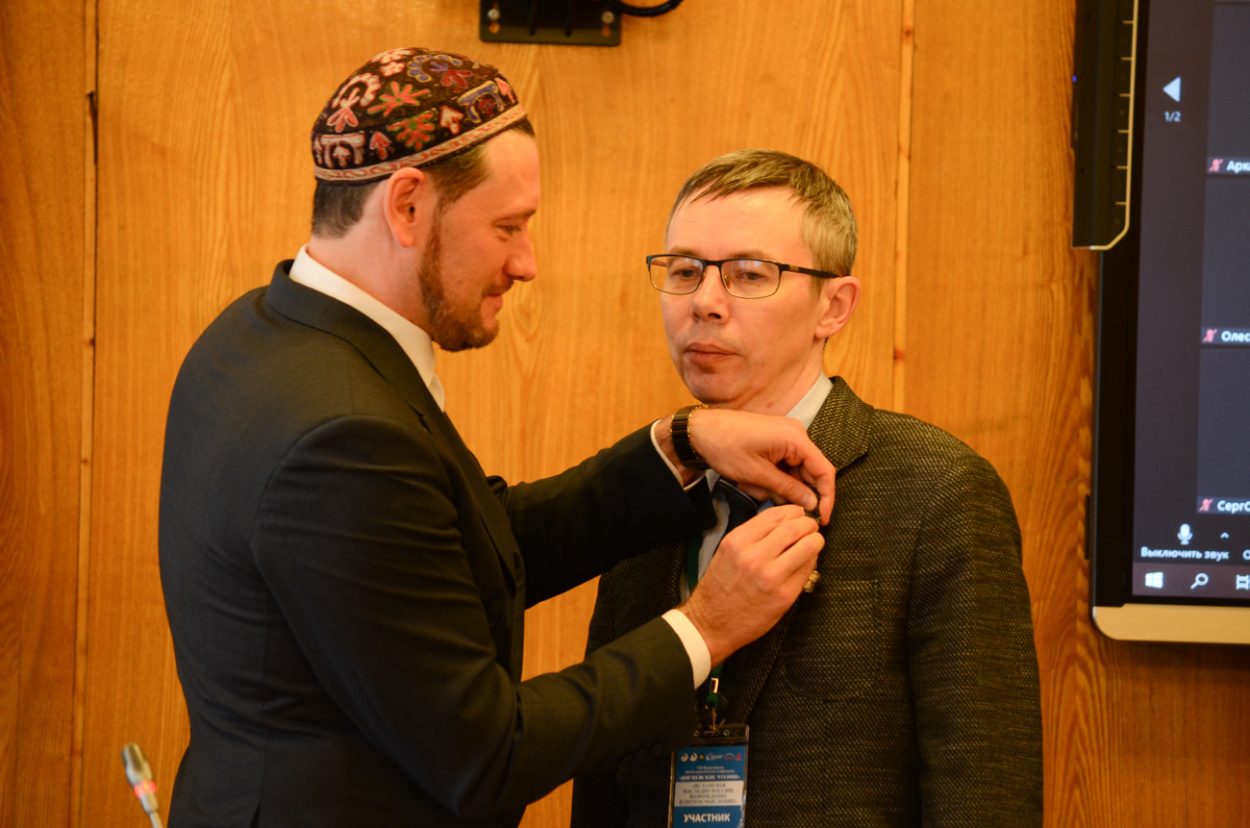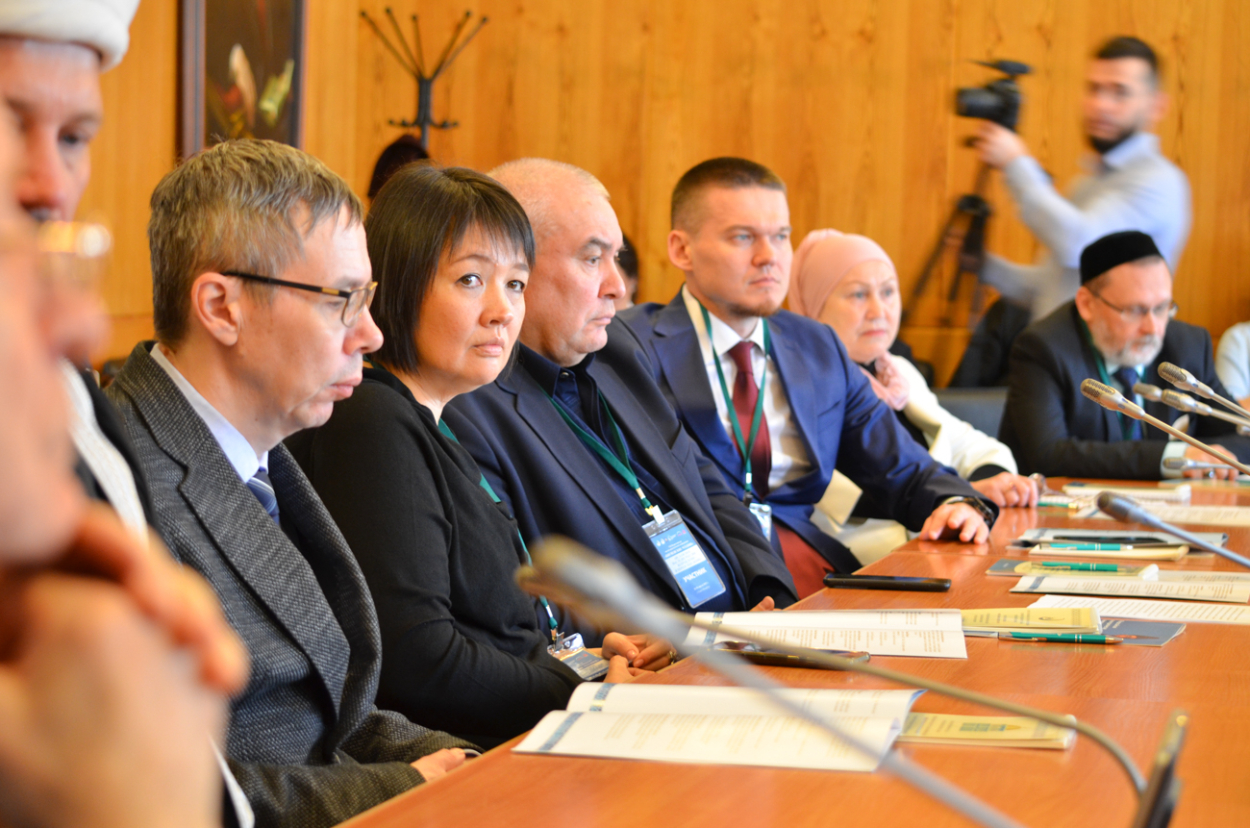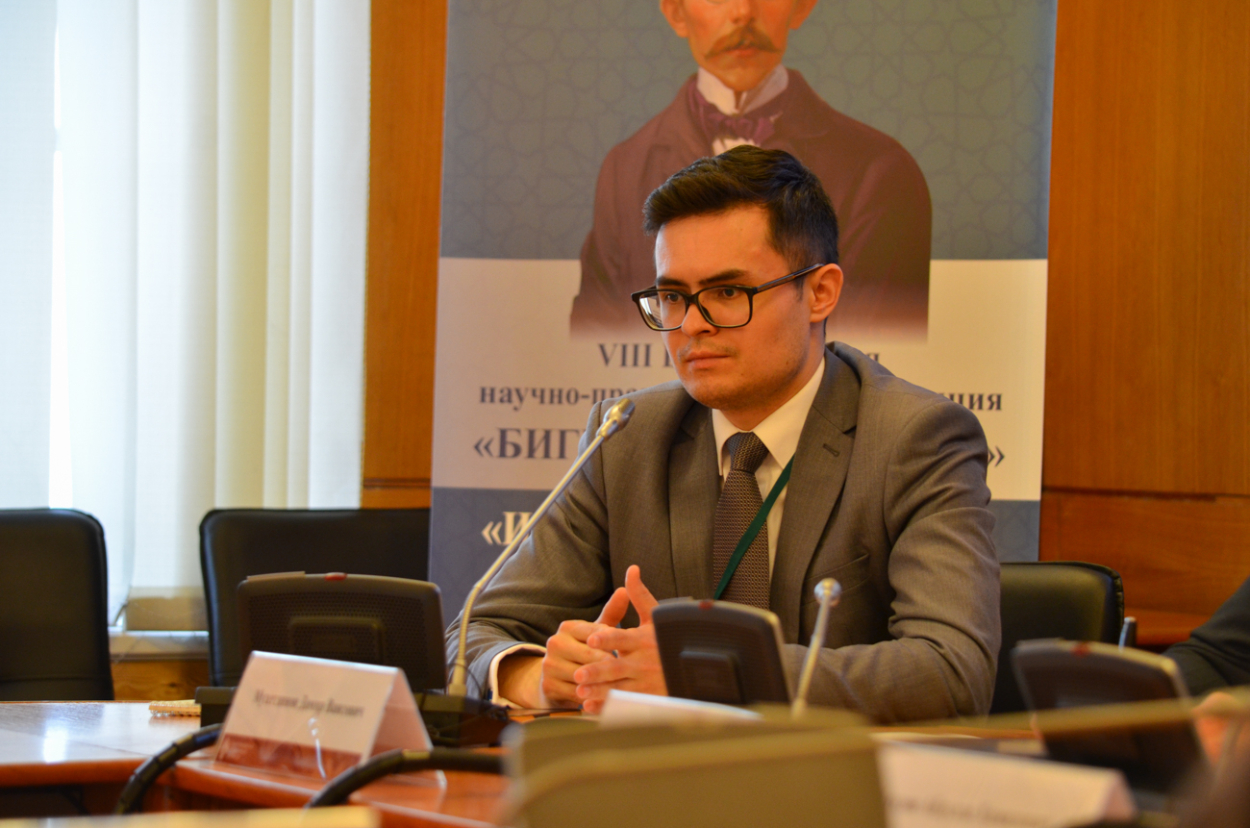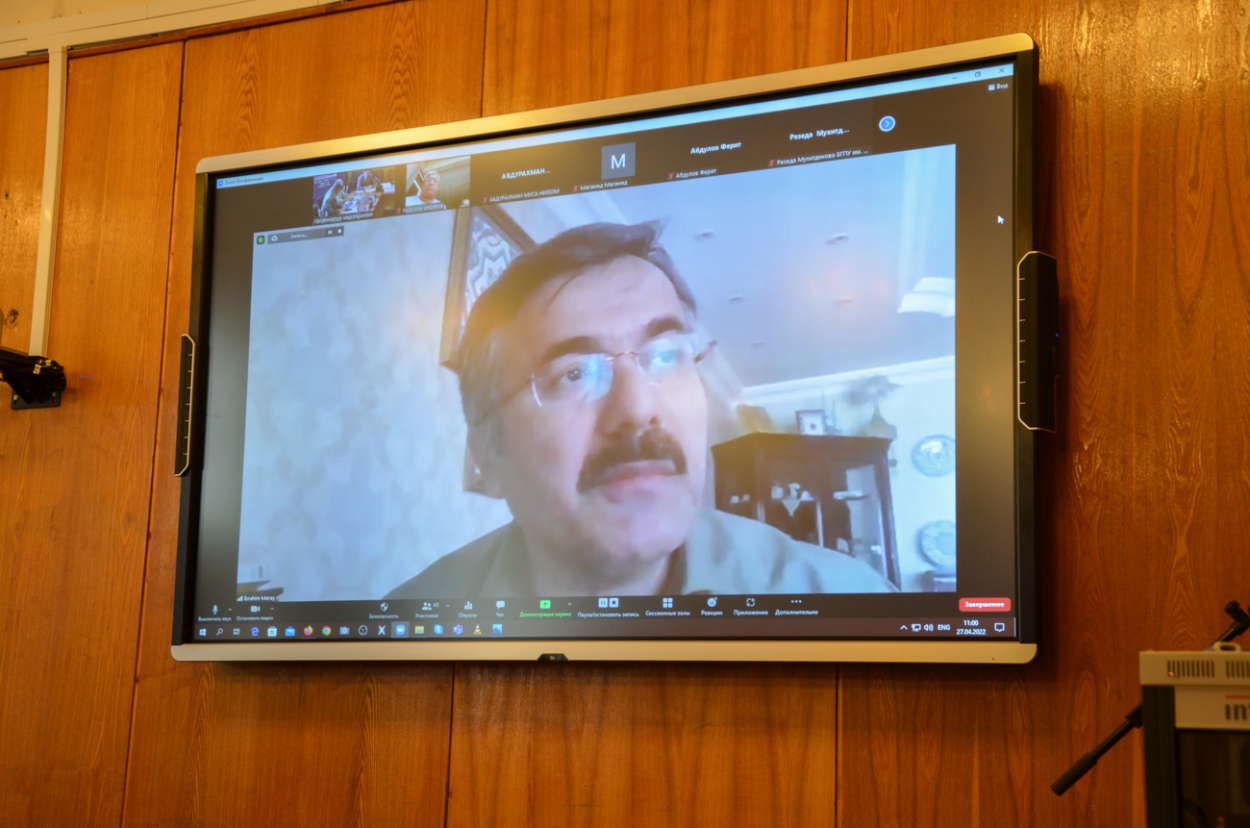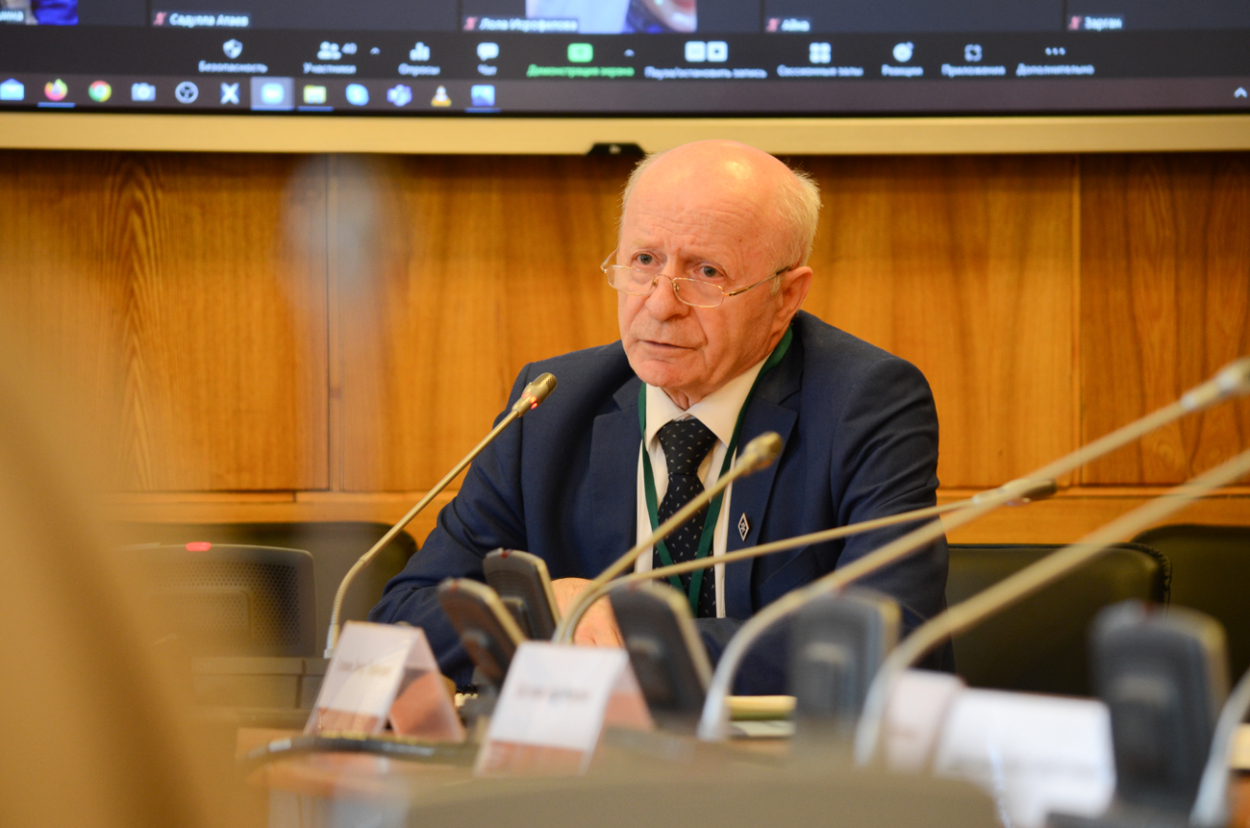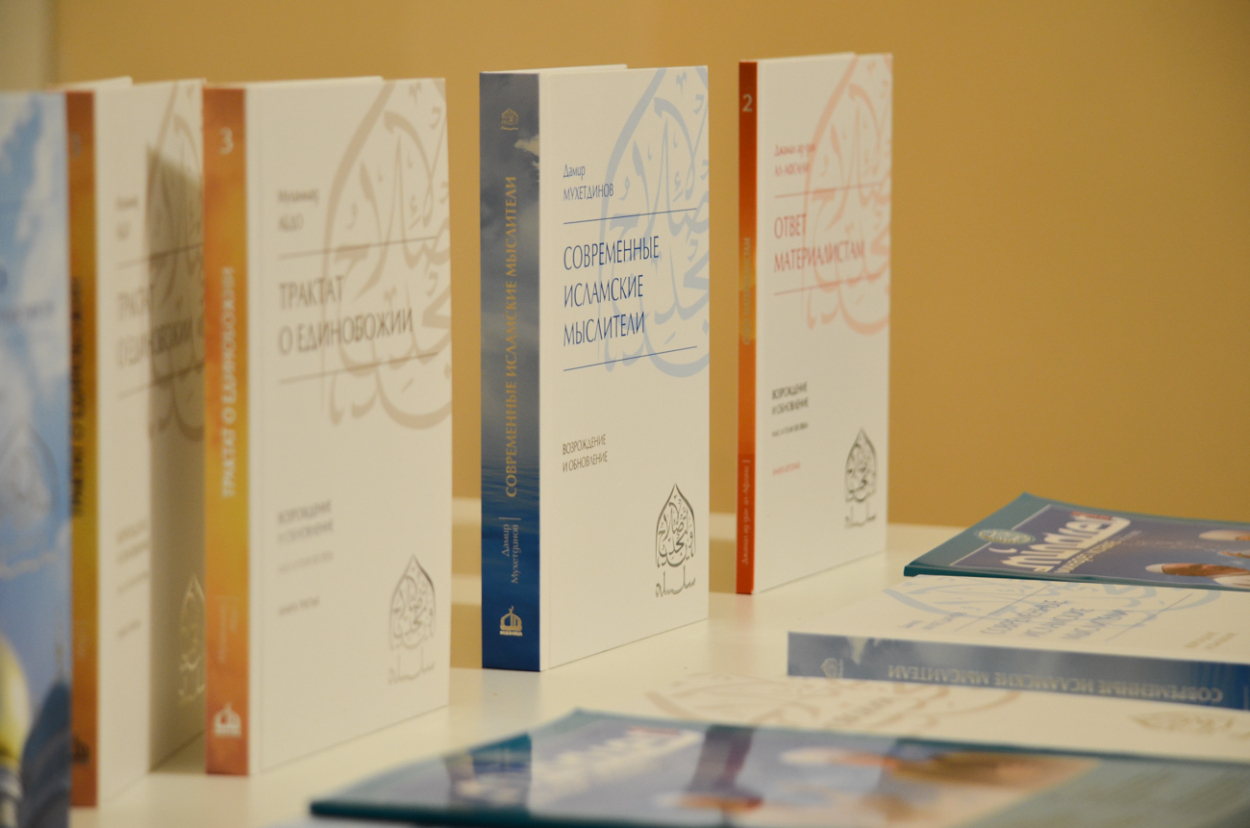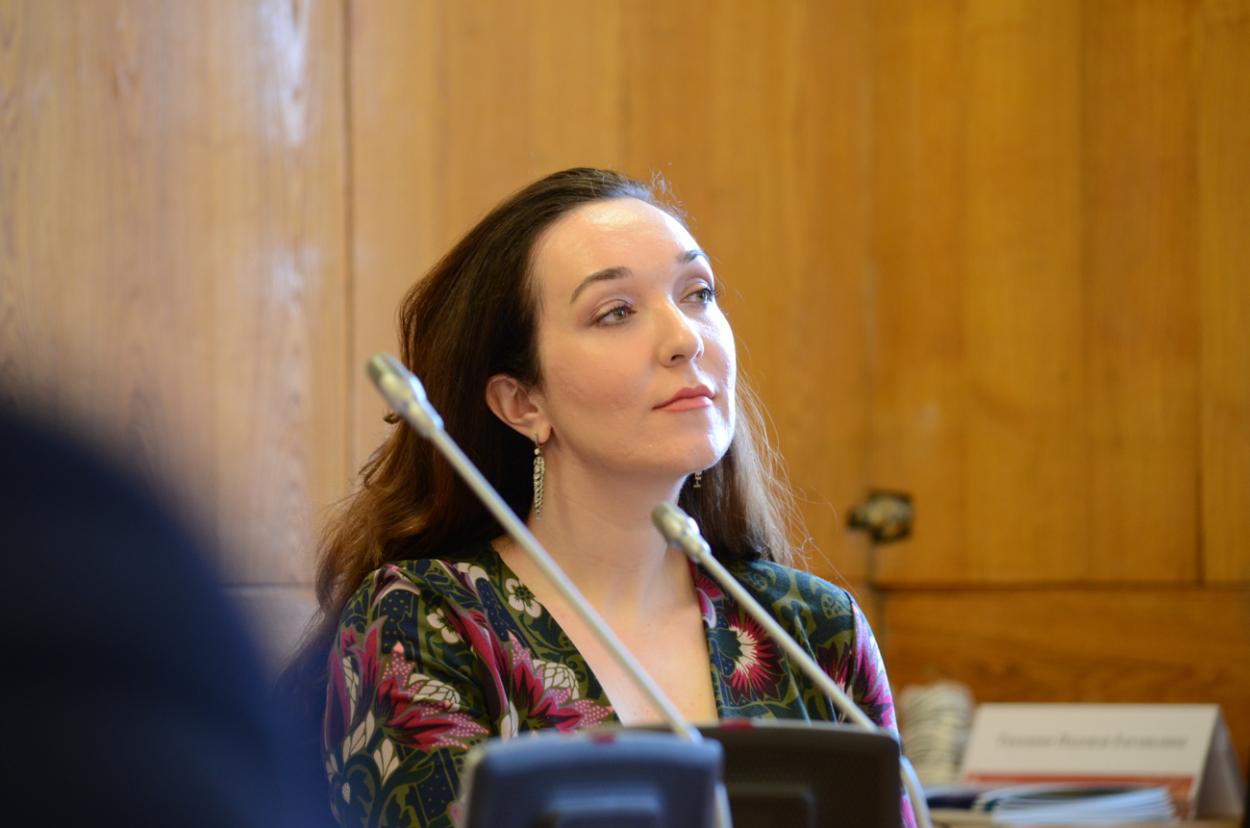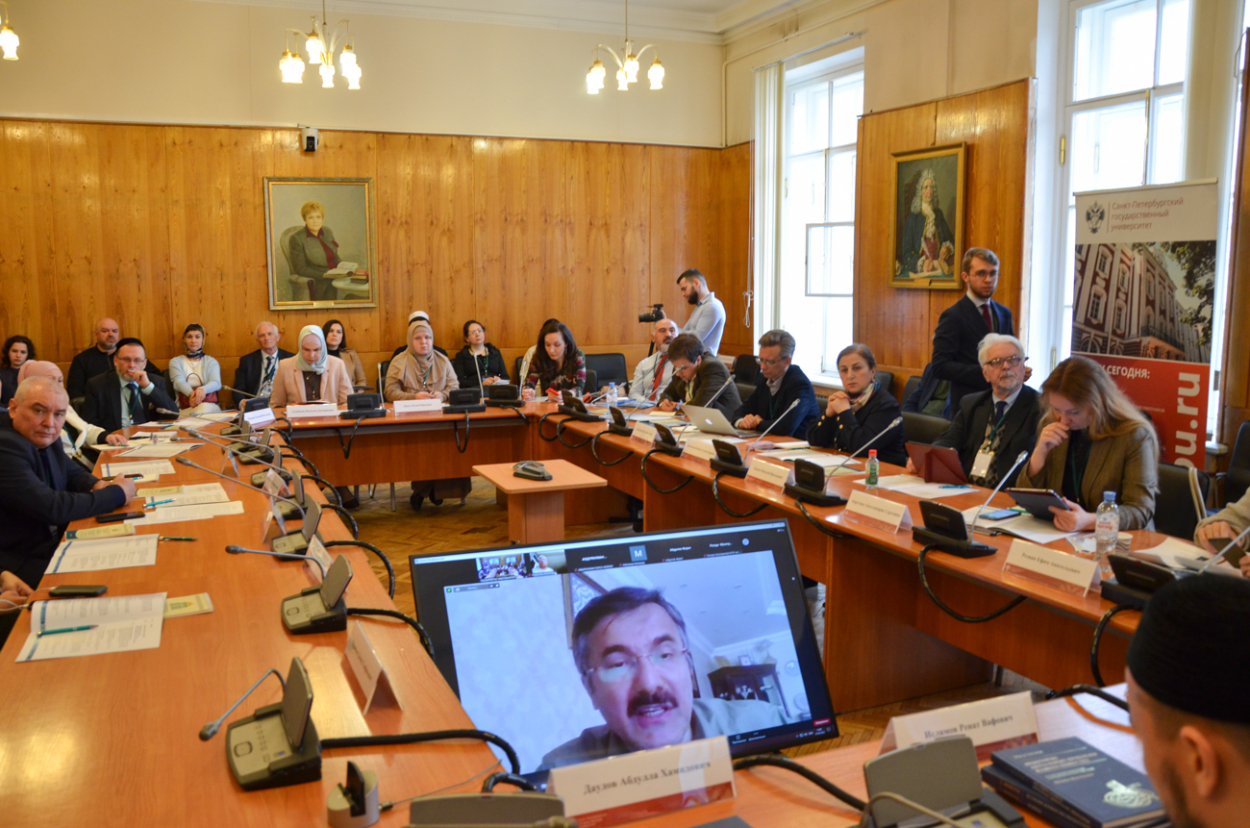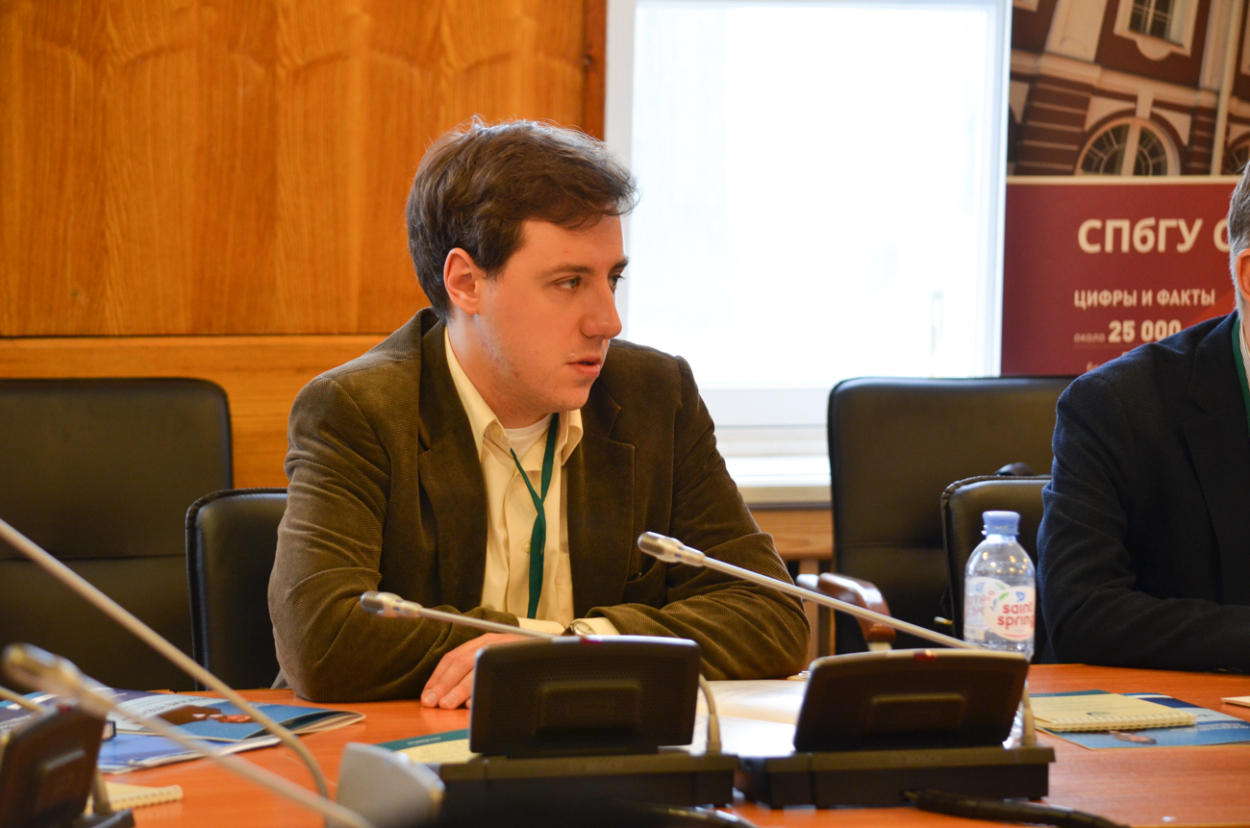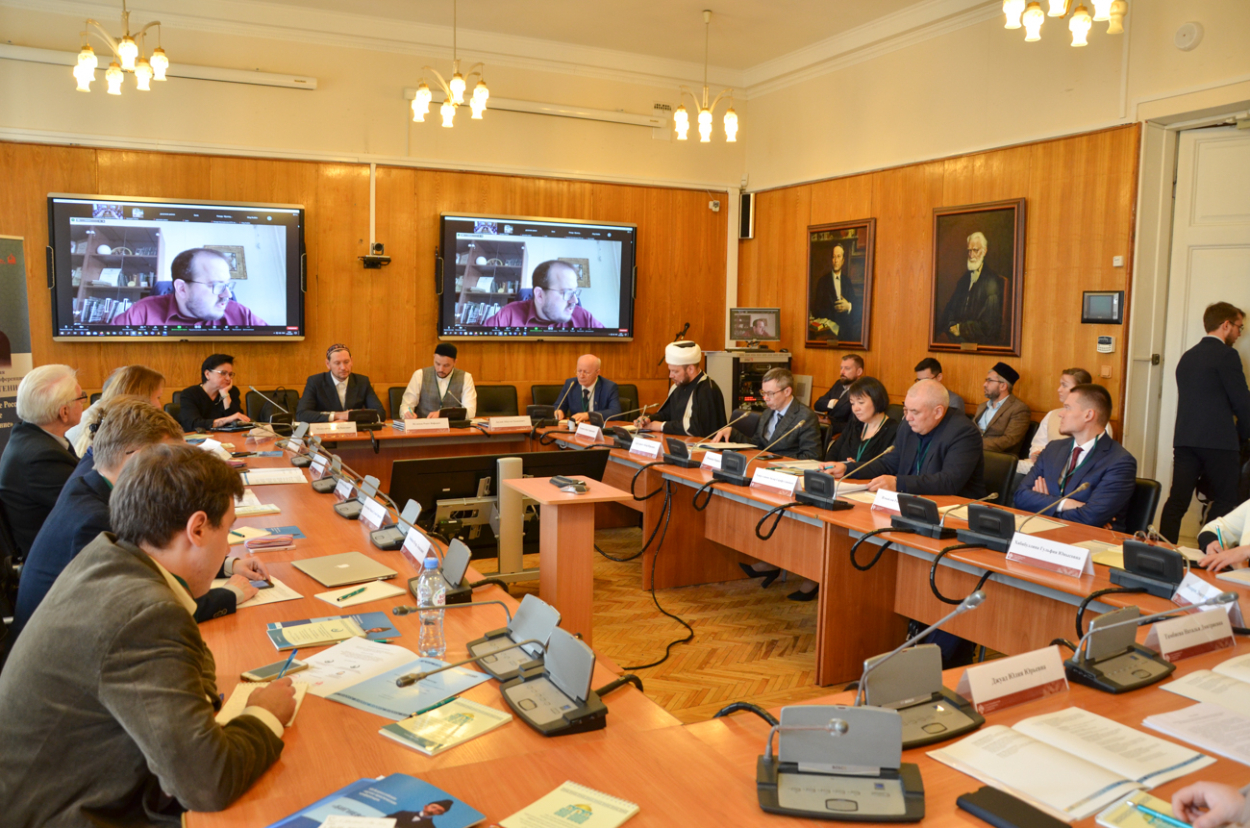The Islamic heritage of Russia and a new generation of intellectuals: St Petersburg University held the Bigiev Readings-2022
The 8th All-Russian Research and Practical Conference "The Bigiev Readings" has been held at St Petersburg University. This year, its focus is "The Islamic Heritage of Russia: Revival and Renewal".
The event was timed to coincide with the celebrations marking the 1100th anniversary of the adoption of Islam by the Volga Bulgarians. The Bigiev Readings were organised by: the Spiritual Administration of Muslims of the Russian Federation; St Petersburg University; and Moscow Islamic Institute, with the assistance from the Fund for Support of Islamic Culture, Science and Education; the Medina Publishing House; and the SAFMAR Foundation.
A welcoming message from Mufti Sheikh Ravil Gainutdin, the Chairman of the Spiritual Administration of Muslims of the Russian Federation, was delivered by his authorised representative in the Northwestern Federal District Damir Khusainov.
Today’s conference is dedicated to the Islamic heritage of Russia. It is held at one of the oldest and leading classical universities in Russia — St Petersburg University. Indeed, it was the St Petersburg school of oriental studies that produced a constellation of brilliant scholars, many of whom had Muslim roots. Their names will remain forever etched in golden letters in the history of St Petersburg University.
Mufti Sheikh Ravil Gainutdin, Chairman of the Spiritual Administration of Muslims of the Russian Federation
‘Among those scholars, we can mention Sheikh Muhammad Ayyad al-Tantawi and Khusain Faizkhanov, whose works contributed to the wealth of historical, philosophical, philological and theological heritage of our country,’ stressed Mufti Sheikh Ravil Gainutdin. He reminded that one of the areas of long-standing cooperation between the Spiritual Administration of Muslims of the Russian Federation and St Petersburg University is research, preservation and popularisation of the Islamic heritage of Russia. The collaboration projects include the book series ‘Islamic Thought in Russia: Revival and Renewal’, with ‘The Legacy of Musa Bigiev’ being part of the series. Mufti Sheikh Ravil Gainutdin expressed his gratitude to the publishing team for all their productive work.
Mikhail Piotrovsky, Dean of the Faculty of Asian and African Studies at St Petersburg University, Full Member of the Russian Academy of Sciences, and Director of the State Hermitage Museum, emphasised the value of the Islamic culture of the peoples of Russia. He said that the Bigiev Readings ‘is a wonderful tradition that both helps to preserve the memory of this amazing person and provides the opportunity to discuss the issues of the Russian Islamic cultural heritage’. Mikhail Piotrovsky also reminded that 2022 is the 15th anniversary year of the Medina Publishing House that promotes and preserves the best traditions of Islamic education in Russia.
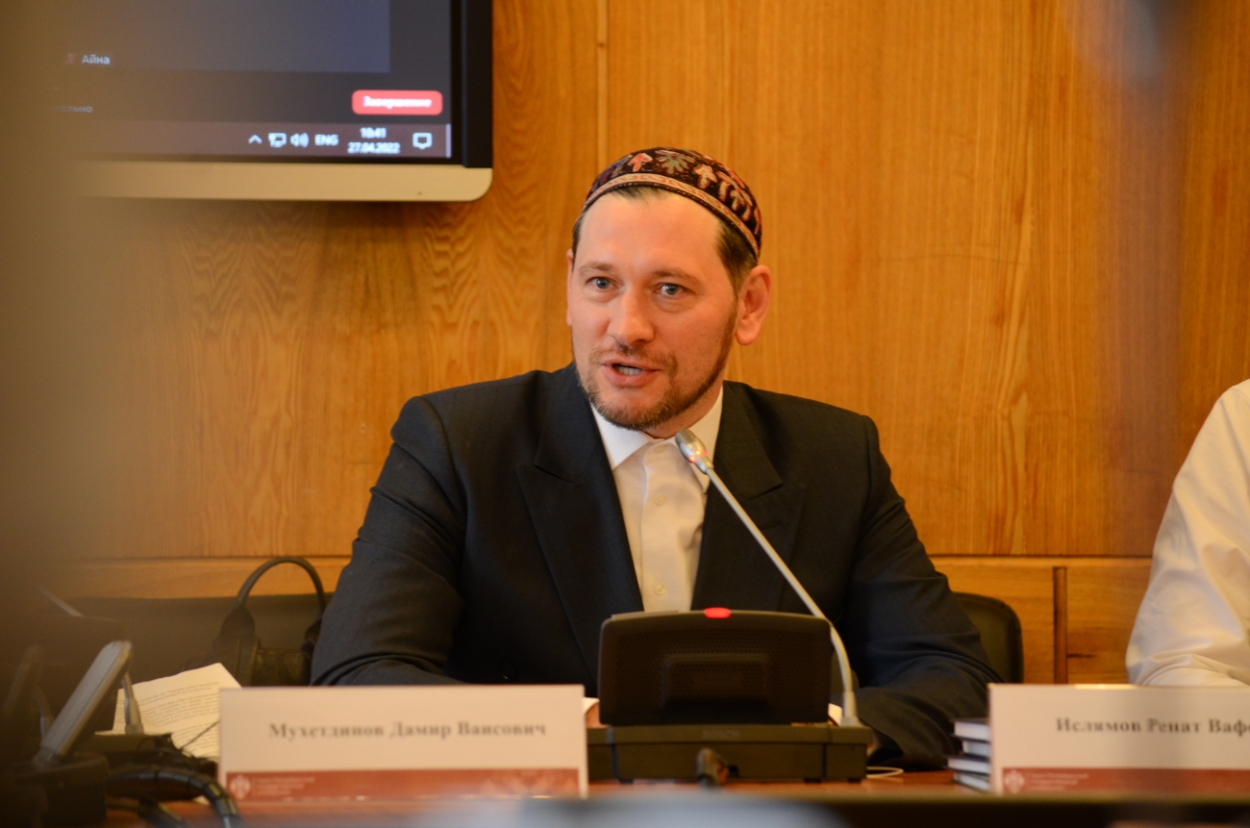
Professor Damir Mukhetdinov, First Deputy Chairman of the Spiritual Administration of Muslims of the Russian Federation, Doctor of Theology and Head of the Centre for Islamic Studies at St Petersburg University, thanked Mufti Sheikh Ravil Gainutdin and the Rector of St Petersburg University, Corresponding Member of the Russian Academy of Sciences Nikolay Kropachev for their support for efforts to develop Islamic theology as an academic and research field.
In 2004, at the request of Muslim spiritual leaders, the President of Russia supported a programme that was first launched at Moscow Islamic Institute, and then the initiative was taken up by St Petersburg University.
Damir Mukhetdinov, Head of the Centre for Islamic Studies, First Deputy Chairman of the Spiritual Administration of Muslims of the Russian Federation, Doctor of Theology
‘We were able to raise both Oriental and Islamic studies to a qualitatively new level and give impetus to the development of theology,’ noted Professor Damir Mukhetdinov. He drew attention to the fact that Musa Bigiev is better known abroad than at home. Only two dissertations have been dedicated to researching his work in Russia, while about 20 dissertations on this subject have been defended in Turkey, and one at Columbia University (the USA).
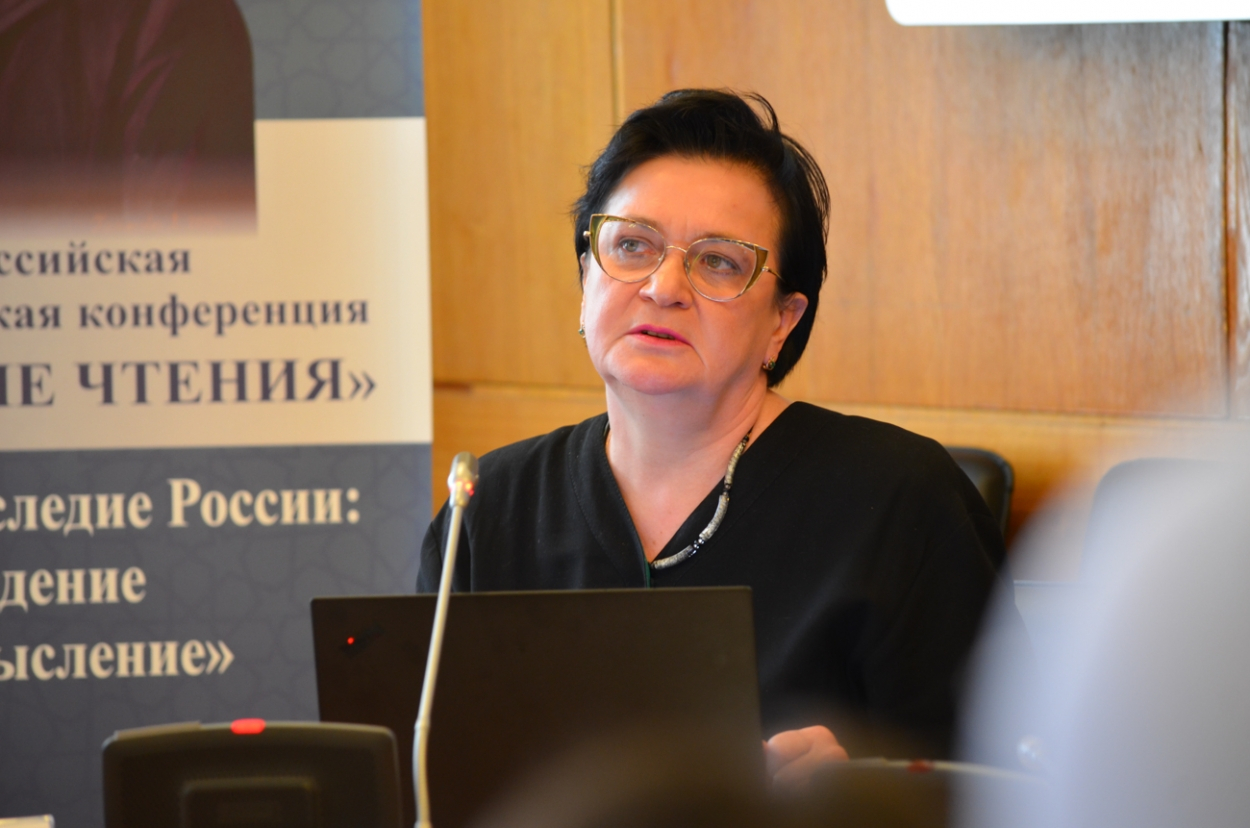
Irina Popova, Director of the Institute of Oriental Manuscripts of the Russian Academy of Sciences, Corresponding Member of the Russian Academy of Sciences, reminded that 2022 was declared the Year of the Cultural Heritage of the peoples of Russia. Cultural heritage represents our history and our identity. It includes all evidence of human creativity and expression: art monuments, museum collections, manuscripts and even ideas. ‘We live in a very difficult time, when Russian civilisation shows that it has ample margins of strength. This is supported by another very important element of cultural heritage — human values and human relations,’ Irina Popova added.
Vasily Kuznetsov, Head of the Centre for Arab and Islamic Studies at the Institute of Oriental Studies of the Russian Academy of Sciences, emphasised the importance of education and reconnection with the theological legacy of Islamic thinkers of Russia. According to Vasily Kuznetsov, rationality, commitment and integrity — apparent not only in the work of Musa Bigiev, but also in other Muslim modernists and neomodernists — can facilitate social and political transformations that are taking place worldwide.
Professor Abdulla Daudov, Director of the Institute of History at St Petersburg University, in his address to the conference, emphasised that Russia was established as a multinational state. He reminded that Muslims make up almost 20% of the population of the Russian Federation and they have greatly contributed to the development of the country. ‘St Petersburg has been a multinational and multicultural city since its foundation; and St Petersburg University is a natural part of it,’ stressed Professor Daudov.
Musa Bigiev and "Enlightened Islam"
In his plenary presentation, Professor Damir Mukhetdinov spoke about publication of "The Legacy of Musa Bigiev". Seven volumes of the collected works by the Tatar thinker have been published to that date. Two books — ‘Müskirat: the Problem of Intoxicating Drinks from the Viewpoint of Islamic Shariah’ and ‘Fundamentals of Shariah’ — were presented at the conference; and three more are in prepress. In total, 50 works of Musa Bigiev’s oeuvre are planned to be published in the collection. It will be the most complete collected works of Musa Bigiev to date. ‘A new generation of young specialists in Islamic studies is being formed. They are in their 30s and they all work with primary sources,’ shared Professor Mukhetdinov, Head of the Centre for Islamic Studies at St Petersburg University. ‘The new generation of Islamic scholars, which is being formed in the bachelor’s, master’s and doctoral programmes, are the future of Islam in Russia. This new generation of intellectuals will work in different regions of our country.’ Damir Mukhetdinov stressed that in the 21st century it is extremely important to promote the principles and values of ‘enlightened Islam’ which is immune to the ideology of extremism and radicalism.
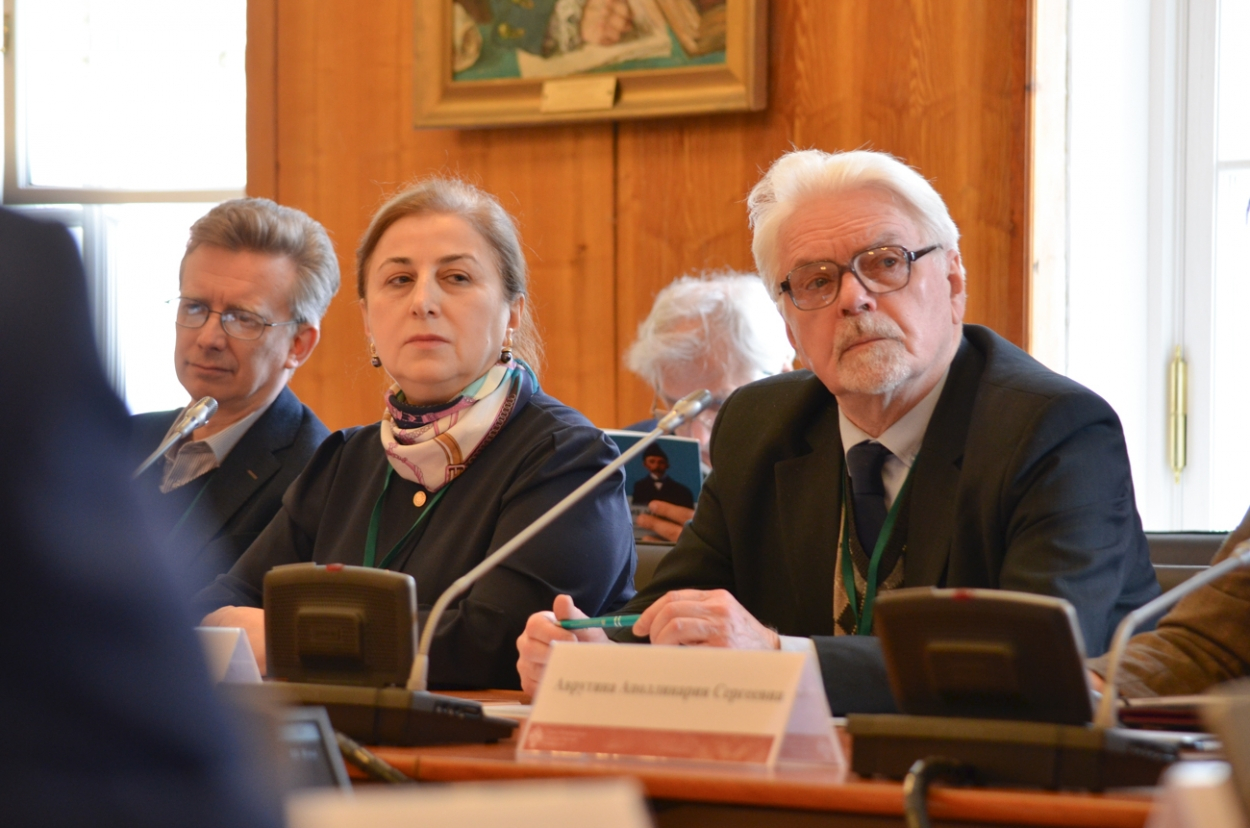
Nikolai Diakov, Head of the Department of History of the Middle East Countries and Professor Emeritus at St Petersburg University, delivered a key-note presentation on the role of Abd al-Hamid Ben Badis in the Islamic reformist movement in the new history of the Maghreb. After France seized Algiers in 1830, Algeria became a springboard for French territorial expansion inland and the pattern for French colonial rule in North Africa. The interactions between the French colonial government and the Muslim population were plagued by severe problems.
During the 132 years of the French colonial presence in Algeria, there was a deeply felt need to preserve the Islamic heritage and Islamic Ummah as such. Yet, we cannot fail to mention that the French authorities did not spare any effort to create a split among the Muslim community of Algeria, and subsequently the entire Maghreb.
Nikolai Diakov, Head of the Department of History of the Middle East Countries and Professor Emeritus at St Petersburg University
In response to the official "Muslim policy", Sheikh Abd al-Hamid Ben Badis founded the Association of Algerian Muslim Ulema in the city of Constantine. Ben Badis would become one of the key figures in Algeria’s nationalist movement and the Islamic reformist movement. Today, the rallying cry of the great Islamic reformer Sheikh Abd al-Hamid Ben Badis is back on Algeria’s agenda.
İbrahim Maraş, Doctor of Theology, Professor in the Department of Islamic Philosophy at Ankara University, presented an overview of the Turkish scholars’ research dedicated to the works of Musa Bigiev. Professor Maraş spoke about the life of the Tatar thinker and underlined the need for further research of Musa Bigiev’s legacy, which is of prime importance for modern Islamic thought. The discussion was continued by Professor Apollinariia Avrutina, Director of the Centre for Contemporary Turkish Studies and Russia-Turkey Relations at St Petersburg University. As the editor of the collected works of Musa Bigiev, she was surprised to discover that despite the fact that the thinker lived and worked in Russia for many years, his legacy has been studied in our country much less than in Turkey. In her presentation, Professor Avrutina spoke about the views of Musa Bigiev’s followers and critics in Turkey. The most prominent of Bigiev’s critics was Sheikh al-Islām Mustafa Sabri, who nonetheless recognised the deep knowledge and sincere faith of the Tatar philosopher, Professor Avrutina emphasised.
Aidar Khairutdinov, Head of the Centre for the Study of Musa Bigiev’s Intellectual Heritage, Senior Research Associate in the Department of the History of Religions and Social Thought at the Mardzhani Institute of History at the Academy of Sciences of the Republic of Tatarstan, spoke about Musa Bigiev’s work "Principles of Islamic jurisprudence".
Sacred scripture, folklore and fatwa-making
The polyphony of the Quran was the subject of a presentation made by Oleg Redkin, Professor Emeritus at St Petersburg University, Head of the Department of Arabic Philology and Deputy Head of the Research Laboratory for Analysis and Modelling of Social Processes at St Petersburg University. According to Professor Redkin, the phenomenon of the Quran is extended well beyond the bounds of religion, having acquired universal value and cultural significance.
The language of the sacred scripture of Islam, with its multiple layers of prosodic and semantic structures, reveals to both ordinary readers and specialists, including translators, new facets of symbolism and imagery every time they immerse themselves in the text.
Professor Redkin recalled the words of Professor Mukhetdinov about the relationship between translation and original and the importance of working with primary sources. He also reminded that contemporaries criticised Musa Bigiev’s attempts to translate the Quran. ‘The Quran is such a multifaceted, unique phenomenon — every time we discover it anew. It belongs to all mankind and will always be studied,’ concluded Professor Oleg Redkin.
Professor Efim Rezvan, Head of the Research Area of the Peter the Great Museum of Anthropology and Ethnography of the Russian Academy of Sciences and Director of the Museum of Islamic Culture, and Makka Albogachieva, Senior Research Associate in the Department of Caucasus at the Peter the Great Museum of Anthropology and Ethnography of the Russian Academy of Sciences, made a joint presentation on the religious and folklore heritage of the Muslim peoples of the Russian Federation in audio format. ‘We all have worked in the archives and collected manuscripts. These sources hold great significance, indeed, and are best known to researchers,’ Makka Albogachieva noted. On the other hand, there are very few scholars who specialise in audio and video materials stored in depositories in Russia and overseas. The key-note speakers shared their progress in searching, collecting and systematising audio materials on folk art and religion in the archives of the Russian Federation and abroad, what challenges the research team is facing and what results they expect to achieve.
Aidar Khabutdinov, Professor of the Kazan branch of the Russian State University of Justice, made a presentation "The role and programme requirements of the Muslim ulema of the Volga-Ural region at the Muslim provincial congresses of 1917". Damir Khusainov, Chairman of the Spiritual Administration of Muslims of St Petersburg and the Leningrad Region, spoke about fatwa-making in the modern realities and the confession of faith within the framework of Shariah Law.
The Bigiev Readings has brought together representatives of the Spiritual Administration of Muslims and leading scholars from universities and research institutions in Russia and Turkey: St Petersburg University; Moscow Islamic Institute; the Russian State University for the Humanities; Kazan Federal University; National Research University Higher School of Economics; the Russian State University of Justice; Bashkir State Pedagogical University; the State Hermitage Museum; the Peter the Great Museum of Anthropology and Ethnography (the Kunstkamera); the Institute of Oriental Manuscripts of the Russian Academy of Sciences; the Institute of Oriental Studies of the Russian Academy of Sciences; the Institute of World History of the Russian Academy of Sciences; the Mardzhani Institute of History at the Academy of Sciences of the Republic of Tatarstan; the Russian Academy of Education; Ankara University; and the Mimar Sinan Fine Art University. The conference programme also included a round-table session of young researchers — graduate and doctoral students from: St Petersburg University; Lomonosov Moscow State University; the Kabardino-Balkarian Scientific Centre of the Russian Academy of Sciences; and European University at St Petersburg.


